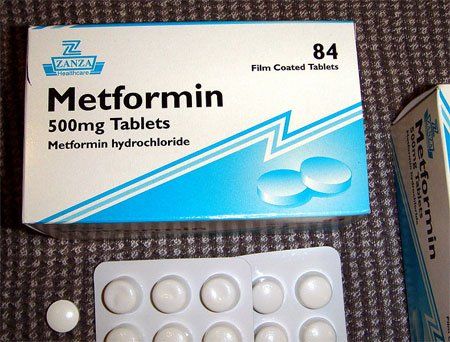Effect of Metformin on RCC Survival Warrants Further Study
Patient exposure to metformin before undergoing nephrectomy for renal cell carcinoma may have an effect on patient survival, according to a new study.
Metformin prior to nephrectomy may yield a survival benefit in RCC.

Patient exposure to metformin before undergoing nephrectomy for renal cell carcinoma (RCC) may have an effect on patient survival, according to the results of a study published recently in Urologic Oncology.
Results of the study showed a positive effect of the anti-diabetes drug in an unadjusted analysis; however, this effect was not seen on multivariable analysis.
“Interest in metformin as a possible therapeutic option for RCC has been generated by emerging data from both observation and prospective studies assessing the association between risk of cancer-related death and exposure to metformin for a variety of malignancies,” wrote Sarah P. Psutka, MD, of the department of urology at Mayo Clinic, Rochester, Minn., and colleagues.
In this study, Psutka and colleagues looked specifically at outcomes in patients with type 2 diabetes who had been taking metformin when they underwent surgery for localized RCC. Data from 283 patients who had surgery between 1994 and 2008 was examined. Of the patients included in the analysis, 29% had received metformin.
Data showed that the proportion of patients with diabetes and RCC on metformin who underwent surgery increased significantly during the study period from 13.4% in 1994-1999 to 41.7% in 2005-2008.
Patients on metformin were more likely to have a higher median estimated glomerular filtration rate (P < .001), a lower Charlson comorbidity index (P = .02), and were more likely to have an ECOG performance status of 0 (P = .001) compared with patients who had not been taking metformin.
After a median follow-up of 8.1 years, those patients who had been exposed to metformin had similar rates of 5-year progression-free survival (80% vs 75%) and cancer-specific survival (91% vs 81%) to those patients who had not been exposed to metformin, but they also had a significantly improved overall survival (79% vs 62%; P = .01).
Results of the multivariable analysis showed that metformin did not independently predict time to disease progression, cancer-specific mortality, or all-cause mortality.
“Although metformin was not independently associated with oncologic or survival outcomes, future studies appear warranted,” the researchers wrote.